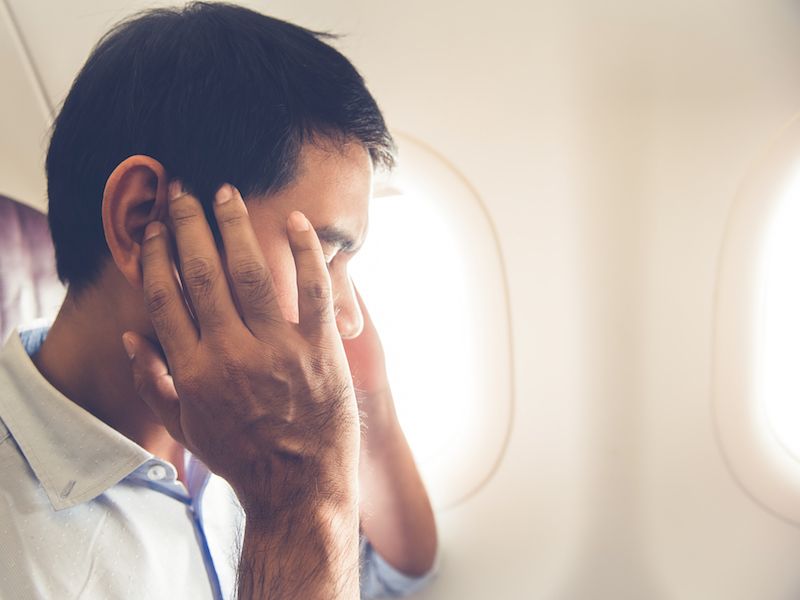
With tinnitus, it’s common to have good and bad days but why? More than 45 million Americans experience ringing in their ears due to a condition called tinnitus, according to the American Tinnitus Association, and that’s accompanied by hearing loss by about 90 percent of them.
But what’s difficult to comprehend is why it’s nearly non-existent on some days and on others the ringing is so invasive. Some normal triggers might explain it but it’s still not clear why this occurs.
What Is Tinnitus?
The following phantom noises are heard by people who suffer from tinnitus:
- Clicking
- Hissing
- Ringing
- Buzzing
- Roaring
You hear it, the person right next to you doesn’t, which is one thing that makes tinnitus so disturbing. The noise can vary in pitch and volume, too. It might be gone one day and the next it’s a roar.
What Causes Tinnitus?
Changes in a person’s hearing are the most prevalent cause. These changes may be due to:
- Earwax build up
- Aging
- Ear bone changes
- Noise trauma
A few other potential causes include:
- Acoustic neuroma
- High blood pressure
- Tumor in the head or neck
- Atherosclerosis
- TMJ problems
- Meniere’s disease
- A problem with the carotid artery or jugular vein
- Head injury
For a small fraction of people, there isn’t any apparent explanation for them to have tinnitus.
If your tinnitus is new, see your doctor and learn what is going on with your ears. The issue might be something treatable or it might be a symptom of a life-threatening condition such as high blood pressure or heart disease. It could also be a side effect of a new medication.
Why Does the Ringing Get Worse on Some Days?
It’s somewhat of a medical mystery as to why certain days are worse than others for those who have tinnitus. And there may be more than one reason depending on the person. There are common triggers that might explain it, though.
Loud Events
Your tinnitus can be aggravated by loud events such as concerts, club music, and fireworks. If you expect to be exposed to loud noise, your best option is to wear hearing protection. They make earplugs, for example, that will allow you to enjoy music at a live performance but reduce the effect it has on your ears.
Another thing you can do is to put some distance between you and the source of the noise. For instance, don’t stand next to the speakers when attending a concert or up front at a fireworks show. Combined with hearing protection, this could diminish the impact.
Loud Noises at Home
Loud noises around your house can also be a problem. For example, mowing the lawn is enough to induce tinnitus. Here are various other sounds from around the house that can cause injury:
- Woodworking – Power tools are loud enough to be an issue.
- Wearing headphones – The function of headphones is to raise the volume of your audio which could be aggravating your tinnitus so it might be time to lose those earbuds.
- Laundry – If you fold clothing while the washer is running, for instance.
If you can’t avoid loud noises at least wear hearing protection.
Noises at Work
Loud noises on the job have the same impact as a concert or the lawnmower. It’s especially crucial to use ear protection if you work in construction or are around machines. Talk to your boss about your hearing health; they might supply the ear protection you need. Spend your off time letting your ears rest, too.
Air Pressure Changes
Many people have experienced ear popping when they take a plane. The shift in air pressure combined with the noise from the plane engines can result in an increase in tinnitus. Think about ear protection if you are traveling and bring some gum to equalize the air pressure.
Changes in air pressure occur everywhere not only on a plane. If you have sinus problems, for instance, think about taking medication to help relieve them.
Medication
Speaking of medication, that could also be the issue. Some medications are ototoxic, meaning they have an impact on the ears. Some prevalent drugs on the list include:
- Diuretics
- Antibiotics
- Over-the-counter pain relievers
If you’re experiencing an intensifying of your tinnitus after you start taking a new medication, check with your doctor. It might be possible to switch to something else.
Tinnitus is an irritation for some people, but for others, it can be debilitating. The first step is to figure out what’s causing it and then look at ways to keep it under control from day to day.